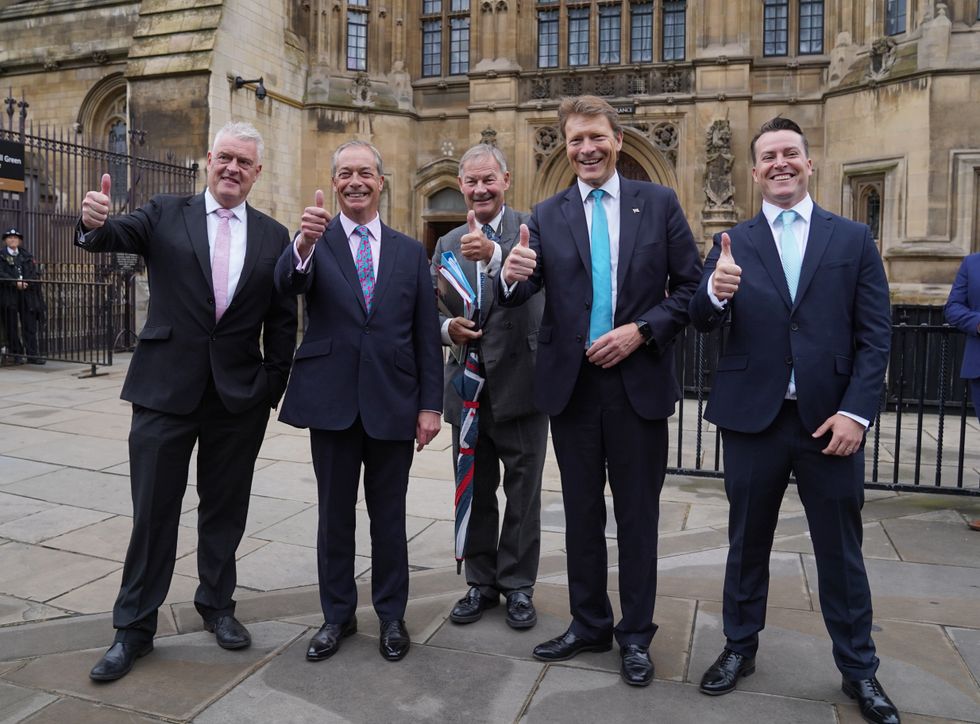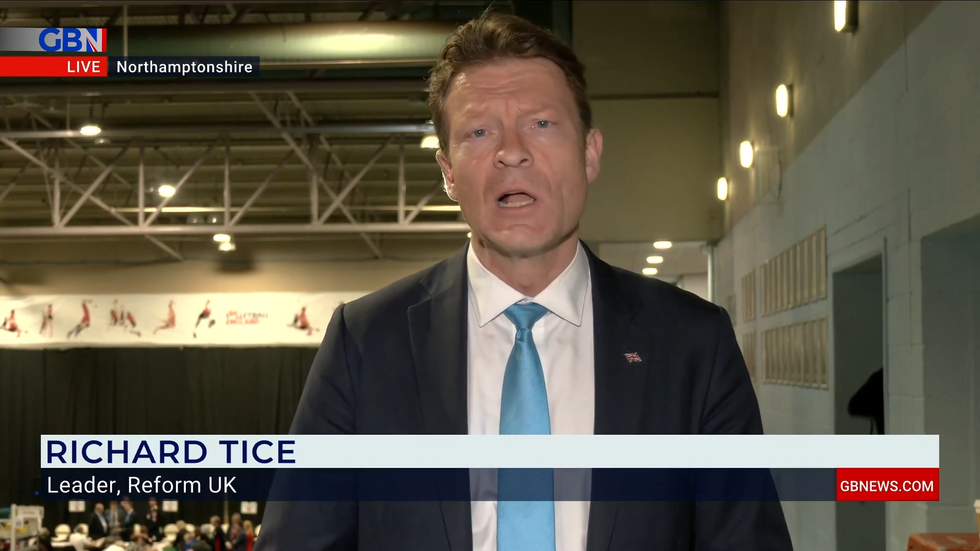Reform MP Richard Tice launched a blistering attack on Britain’s electoral system on Sunday as he laid out a plan to overhaul it.
The deputy leader’s comments come after the gap between the share of total votes won by the winning party in the 2024 general election and the share of Parliamentary seats won was the largest on record.
The signs that it was the most skewed election in British history were everywhere.
Despite securing fewer votes than Jeremy Corbyn in 2019, Sir Keir Starmer’s party won more than double the seats, storming to victory with a thumping majority of 411.
Meanwhile, Reform UK came second in 98 seats, securing over four million votes – and only bagged five seats.

Reform UK won almost half the vote share of Labour – coming second in 98 seats – yet this only results in five seats
PA
This showcases the impact of the UK’s ‘First Past the Post’ (FPTP) electoral system, whereby each constituency elects one MP, with the candidate receiving the highest number of votes wins, regardless of whether they secure a majority.
FPTP often leads to a divergence between vote share and seat distribution due to how votes are concentrated geographically.
This tends to marginalise smaller political parties by making it difficult for them to gain seats unless their support is geographically concentrated, which can stifle political diversity and innovation.
During a panel debate on the crisis of political representation in the UK on Sunday, Mr Tice did not hold back when asked about his views on FPTP.
“It is a stain on our democracy. This is the sort of thing we see in a banana republic,” he told the audience.
He continued: “We have a system to protect the duopoly of two main parties. It prevents competition and people climbing the greasy people.”
In the Reform MP’s opinion, this crowds out politicians of “principle and conviction” as the system is rigged in the favour of the two main parties.
He cites Sir Keir’s first 100 days as evidence of this rot.
“We have the biggest majority and complete carnage, cronyism and the worst of all worlds. The idea that a two-party system leads to strong and stable government is for the birds.”
He continued: “We have a system to protect the duopoly of two main parties. It prevents competition and people climbing the greasy people.”
In the Reform MP’s opinion, this crowds out politicians of “principle and conviction” as the system is rigged in the favour of the two main parties.
He cites Sir Keir’s first 100 days as evidence of this rot.
“We have the biggest majority and complete carnage, cronyism and the worst of all worlds. The idea that a two-party system leads to strong and stable government is for the birds.”
Mr Tice’s blistering attack comes days after a poll of 2,000 adults by JL Partners found 28 per cent of voters had a very or quite positive view of Reform, compared to 27 per cent who felt the same way about Labour.
Sir Keir’s approval ratings have plummeted following a series of scandals during his first 100 days in office.
Proportional Representation (PR) would ensure we do not get a repeat of “the most unjust unfair election we have ever seen”, Mr Tice told the audience.
PR is an electoral system where parties gain seats in proportion to the number of votes cast for them, aiming to ensure that the distribution of seats in a legislative body more accurately reflects the distribution of votes.
This system often results in coalition governments and can provide more representation for minority or smaller political parties compared to winner-takes-all systems like FPTP.

Proportional Representation (PR) is urgently needed to fix the rot in British politics, Mr Tice claims
GB NEWS
Mr Tice points out that most democracies use some variant of PR and average turnout is “dramatically higher” than in the UK.
The average turnout in Germany’s elections, for example, is 76 per cent.
“That’s another three, four or five million people voting than in the UK. That’s really significant,” the Reform MP said.
The primary criticism of PR is that the political fragmentation that naturally follows hardens extreme views and gums up the government.
Mr Tice’s retort is that “the most stable government we have seen in the last 15 years was under David Cameron and Nick Cleg, referring to the Conservative-Liberal Democrat coalition from 2010 to 2015
The Reform MP revealed a concrete plan to prevent the government from becoming paralysed by small factional parties jostling for power, hinting at a future proposal that his party would put to the people.
“When you design a PR system you have got to set the minimum threshold sufficiently high to prevent too many tiny parties – set it at five or six per cent, possibly seven,” he told the Battle for Ideas crowd, adding: “When you get you get more confidence in the electorate and with that you get more people voting and that is good for democracy.”